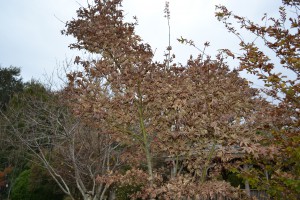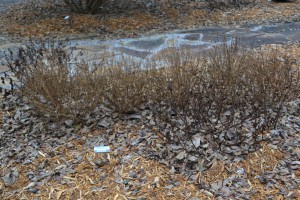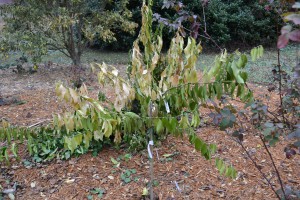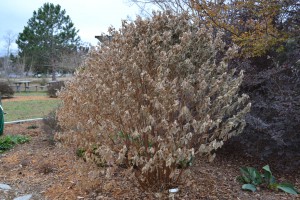Our recent cold weather was not only a surprise for many locals but also for many plants that still had plenty of green growth. After a couple of nights of freezing temperatures, even deciduous trees that had not dropped their leaves, look a little ratty.
Since it is just the beginning of December and we are likely to have many more days this winter with cold weather, now is not the time to react to plants that were damaged. There are a few exceptions of plants that you can prune back, but in general patience is the key for the winter garden and cold-damaged plants.
Here are a few guidelines.
Unless planted in very protected spots, annuals like coleus and angelonia were killed by recent cold air. You may remove these plants or cut them back close to the group to make garden areas look neater. You may want to add some new winter annuals to brighten up these spots.
Both young and mature citrus trees experienced injury since many plants still had tender growth. Do not prune out any damage at this time. We will wait until next Spring to learn where the growth will resume and then prune as necessary to remove dead branches.
As expected, the above ground portions of flowering perennials were severely injured by cold air. It is best not to prune these back now since the layer of branches and foliage may help insulate lower branches that could still have some life. If you are not able to tolerate the look of cold-damaged perennials in your garden, consider only pruning half of the plant just to make a neater appearance in the garden. When warm weather returns next year, we may be surprised to see growth resume on lower stems.
Deciduous trees that would have normally dropped leaves before the cold have full canopies of dead leaves. Trees will eventually drop these leaves aided by winter winds and rainfall.

This Japanese maple will eventually drop it’s cold-damaged leaves and offer attractive bark and structure in the winter garden.
- Gifts from the Garden - January 15, 2026
- A Plant From My Past - January 8, 2026
- Garden Spider Egg Sacs - October 23, 2025



